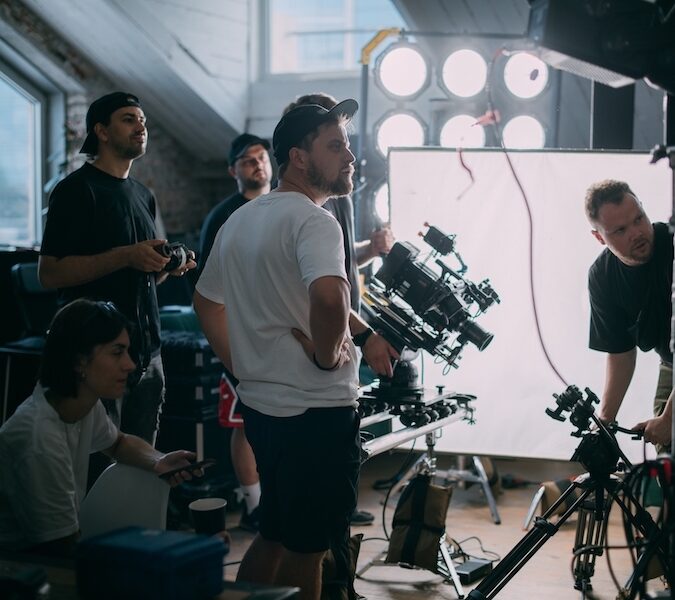Student-centric tech company Niesh wants us to ditch CVs for videos. But is that a good thing?

It’s the near-paralysing fear every student has, ruling over minds like some foul dark lord bent on destruction: getting a job after graduation.
Let’s just be honest: for about 99.99 percent of students (or so it seems – this is a non-scientific figure, after all), that’s the whole reason for going to university in the first place. Get a job. Get paid. Get a life. Rinse, repeat. Keep on keeping on and all that.
But let’s be real. Really real: it’s not easy to get a job – and anyone with a pulse and has been on this Earth long enough to remember that weird time when Tide Pods were not considered a viable snack food can attest.
The folks at Niesh – the Auckland-based company founded in 2015 with the ambition to make life easier for students by offering them a free printing service, and which Idealog has covered before – are keenly aware of this conundrum, and the Catch-22 about how to get a job you need to have experience, but you can only gain experience by getting a job. They’re launching their own jobs platform around April – and it’ll disrupt the traditional way folks apply for jobs online. But, like any innovation or disruption to an industry, there are concerns that, in solving a problem, it could create new problems.
According to director Jae Yoo, the new jobs platform won’t feature traditional resumes, and instead allow users to create a “digital profile” highlighted by a short video introducing themselves.
“We’ve really been focusing on building a platform for students,” he says. “We’re more of a technology company.”
There’s certainly a need to help students in Aotearoa get jobs. Although unemployment continues to fall, youth unemployment has historically been higher than the overall unemployment rate. Things aren’t as dire as in Italy (where about one-third of young people can’t find work, and a single opening for a nursing role in a provincial town can see 2,500 or more people show up for an interview, including some people who queue just after midnight for a bus ride that can take more than seven hours to arrive at the interview location with those thousands of other applicants and take a competency test – and again, all this for just one open position), but it’s still a concern.
But jobs platforms are often clunky things where you upload a CV, a few biographical details, and perhaps copy-and-paste a cover letter into each application. In other words, a host of variations of LinkedIn. And here’s a brutal truth: if you don’t have a host of experience, a woefully skint resume might mean you have roughly the same odds of landing a job you’ve applied for as the Tall Blacks have at defeating LeBron James and the United States’ NBA superstars in Olympic basketball, or a sequel to The Big Lebowksi being made that inexplicably stars Harrison Ford (it’s just not going to happen, OK?).
That’s why the industry is poised for disruption, according to Yoo and the people behind Niesh. By focusing on who the candidate is rather than their qualifications and achievements – things which can easily be exaggerated or outright fabricated on a sheet of paper – prospective employers can see if the person would be a good fit culturally, or demonstrate an understanding of the industry and what they want. According to Yoo, videos are a better way to showcase personalities.
However, the idea of relying on video – a primarily visual medium, of course – also brings up another potential issue: discrimination against job-seekers based on their looks. Much has been written about the “beauty bias” (including how it can negatively impact all people). There’s also a 2000 study that concluded that judgments made in the first 10 seconds of an interview could predict the outcome of the interview. In fact, Google “video interviews and beauty bias,” and you get about 3.34 million results.
Yoo says the video element isn’t necessarily the “Tinderisation” (wherein you look at a picture of someone and decide if you’re keen to get to know them based – let’s be honest here – primarily on what you see) of the jobs market. “We weren’t thinking that,” he claims.
Yet Yoo cites how Tinder users can decide if someone would be a good match – and the fact that users can also enter biographical information to offer a complete profile – as something that’s interesting. He again mentions how, for job seekers on Niesh’s upcoming platform, there will be the option of providing more than just a video introducing yourself. “We think it’ll make things better. Right now our goal is to help students in New Zealand.”

Jae Yoo (left) and James Koo.
Niesh chief executive James Koo echoes Yoo in touting the benefits of a focus on video for applying for jobs, and how the industry is primed for disruption. “It’s about getting rid of the CVs and cover letters and seeing who a candidate really is.”
Yoo says that, on a personal level, the experiences in launching the platform – and the Niesh journey overall (including the February 2017 launch of the Niesh App, a free app for students with access over 100 exclusive discounts in Auckland from 90-plus businesses that has been downloaded more than 9,000 times) – have taught him a few lessons that other entrepreneurs could also learn from. “You need to have the persistence to keep going, the passion.”
Koo agrees. He also offers another lesson, which he says can – perhaps ironically – be particularly important when working with new technologies and disrupting old industries: patience.




